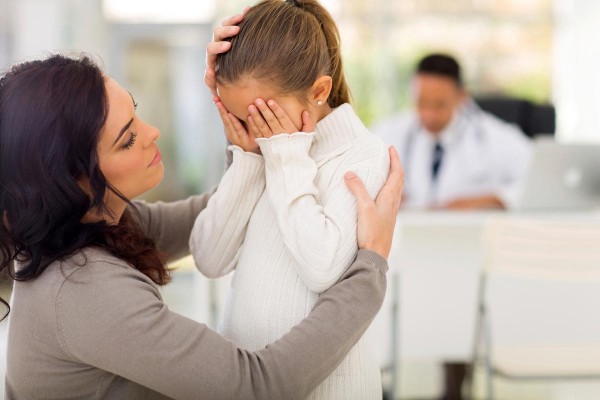Reports claim there is a mental health epidemic affecting two-thirds of children
02/19/2017 / By Tracey Watson

While feeling anxious occasionally is a normal part of life, and indeed of childhood, many children – one in eight, according to the Anxiety and Depression Association of America (ADAA) – are diagnosed at a young age with an anxiety disorder. Being labeled in this way can have a detrimental effect on their quality of life, especially if they are prescribed chemical medications to cope with their feelings. Mental health issues also carry a stigma that they will have to live with for the rest of their lives.
Anxiety disorders are often coupled to diagnoses for depression, ADHD, and other problems – all of which will probably lead to prescriptions for even more pharmaceutical drugs. (RELATED: See what other drugs are being needlessly pushed on children at Psychiatry.news)
This labeling of children seems to be most prevalent among teens. According to the National Institute of Mental Health, 25.1 percent of all children between the ages of 13 and 18 are diagnosed with an anxiety disorder.
Does that seem even remotely possible, that one-in-four of our teens has a serious mental disorder?
Though labeling and medicating children is not the solution, kids do worry about things that loom large in their little lives, and parents need to be alert to the signs that they may need extra love and support to cope.
The mental health charity Place2Be recently conducted research among 700 children between the ages of 10 and 11. Their findings indicate that as many as two-thirds “worry all the time.”
The children admitted to worrying constantly about their family, friends, and schoolwork. In some areas like bullying, girls expressed more anxiety, while other factors like worrying about being angry affected more boys than girls.
Almost half of the children interviewed (40 percent) felt that their anxiety interfered with their schoolwork, 30 percent admitted to not being able to stop worrying once they started, and a fifth felt helpless and didn’t know what to do to make themselves stop worrying.
The charity’s chief executive, Catherine Roche, explained, “… [W]e know that young children can worry about a lot of things, whether it’s something going on at home, with their friends, or even about bad things happening in the world.
“It’s perfectly normal to worry from time to time, but if these worries become more serious or persistent, it’s important that children know where they can turn for help.
“Schools and families play a crucial role in ensuring that children learn to look out for each other and know how to get help if they need it.”
So, what’s going on? Why are our kids so anxious all the time?
Michael Ungar, Ph.D., of Psychology Today, believes that “children’s environments are fast becoming places where they experience sky high expectations, unstable families, and digital neglect from parents who spend too much time on Facebook.” He goes on to explain that one-in-five children is being raised by a single parent – a situation fraught with financial worries and the need to adapt to the different romantic interests of the parent. In addition, close to 50 percent of children between the ages of 7 and 12 hold down jobs, with 5 percent of them working more than 20 hours a week.
Clearly, our modern society is one that makes kids anxious. So, what can we do to help them?
The charity study noted earlier found that 80 percent of children felt better just from having an adult sympathetically listen to their problems. So, take time to really listen to your kids, without interruption.
Perhaps you could take a look at your children’s schedules and make adjustments where necessary. Do they really need to play three instruments, dance and be on the hockey team? Make sure they get enough sleep. Tiredness and a lack of sleep are triggers for anxiety. Also consider limiting the amount of time everyone in the family spends on electronic devices.
As reported by Natural News, there are also several homeopathic remedies that can help alleviate your child’s anxiety.
If you can slow down, calm down, really listen to your kids, and teach them to stop and smell the roses, you can help them navigate this stressful world we live in.
Sources:
Tagged Under: Anxiety, children, natural remedies, parenting
RECENT NEWS & ARTICLES
COPYRIGHT © 2017 BRAIN NEWS


















